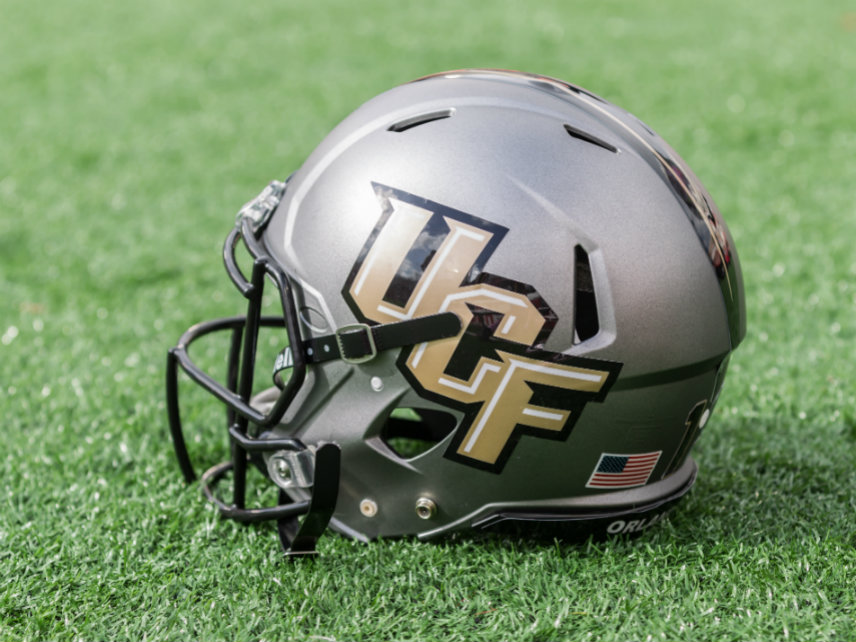College Football Player Who Lost Scholarship Over YouTube Videos Can Sue School, Court Rules
Donald De La Haye says the University of Central Florida violated his First Amendment rights.

A federal court has ruled that Donald De La Haye, a former kicker for the University of Central Florida Golden Knights who lost his scholarship and his place on the football team after making some money off a popular YouTube account, can sue his former school on First Amendment grounds.
The U.S. District Court for the Middle District of Florida rejected the university's attempt to dismiss De La Haye's lawsuit, which will now proceed to the merits of De La Hoye's free speech claims.
"We hope that today's decision denying UCF's attempt to dismiss this case will be a step toward protecting Donald's rights and ensuring all college student-athletes' free speech rights are protected," says Jon Riches of the Arizona-based Goldwater Institute, a free market think tank and legal center that's representing De La Hoye.
On his "Deestroying" account on YouTube, De La Hoye posted videos of his daily routines and workouts, along with funny moments with friends and teammates. Some clips—like one where he destroyed a flat-screen TV by kicking it off the top floor of a parking garage—are just weirdly entertaining. The videos have quite a following: De La Haye has more than 350,000 subscribers, enough to earn money from the advertisements YouTube allows on high-end accounts. According to SocialBlade.com, a website that assesses the potential value of social media accounts, he could earn somewhere between $2,000 and $31,000 a month.
The problem isn't the content of the videos. It's the fact that he made money off them. Per National Collegiate Athletic Association (NCAA) rules, student-athletes lose their amateur status if they earn any money off their sports while attending school. Last July, the NCAA told the school that De La Haye would be ineligible to play college football unless he stopped making videos about the game. He would have been allowed to make videos about other topics—videos that would likely get fewer views and earn him less advertising revenue.
After De La Haye decided not to agree to those terms, the team dismissed him and the school revoked his scholarship. He was given 72 hours to remove himself and all his belongings from university housing. With no where else to turn, he ended up living with a friend and sleeping on a sofa.
"It's really tough," De La Haye said in a video from last July, shortly after he learned that his scholarship would be revoked. "I'm not doing anything wrong. I'm not making money illegally. I'm not selling dope. I'm not kidnapping people or robbing people. I'm not selling my autographs for money. I'm not sitting here getting Nike checks and Nike deals and all these sponsorships. I'm literally filming stuff. I'm sitting here, editing things on my computer for hours and developing my own brand. I put in the work, and I'm not allowed to get any benefits from the work."
This week's court ruling is an encouraging sign, says Robert Henneke, general counsel for the Texas Public Policy Foundation, which is also involved in De La Hoye's lawsuit. "Students like Donald don't check their constitutional rights at the gates to a public university simply because they are athletically gifted," Henneke says.


Show Comments (50)